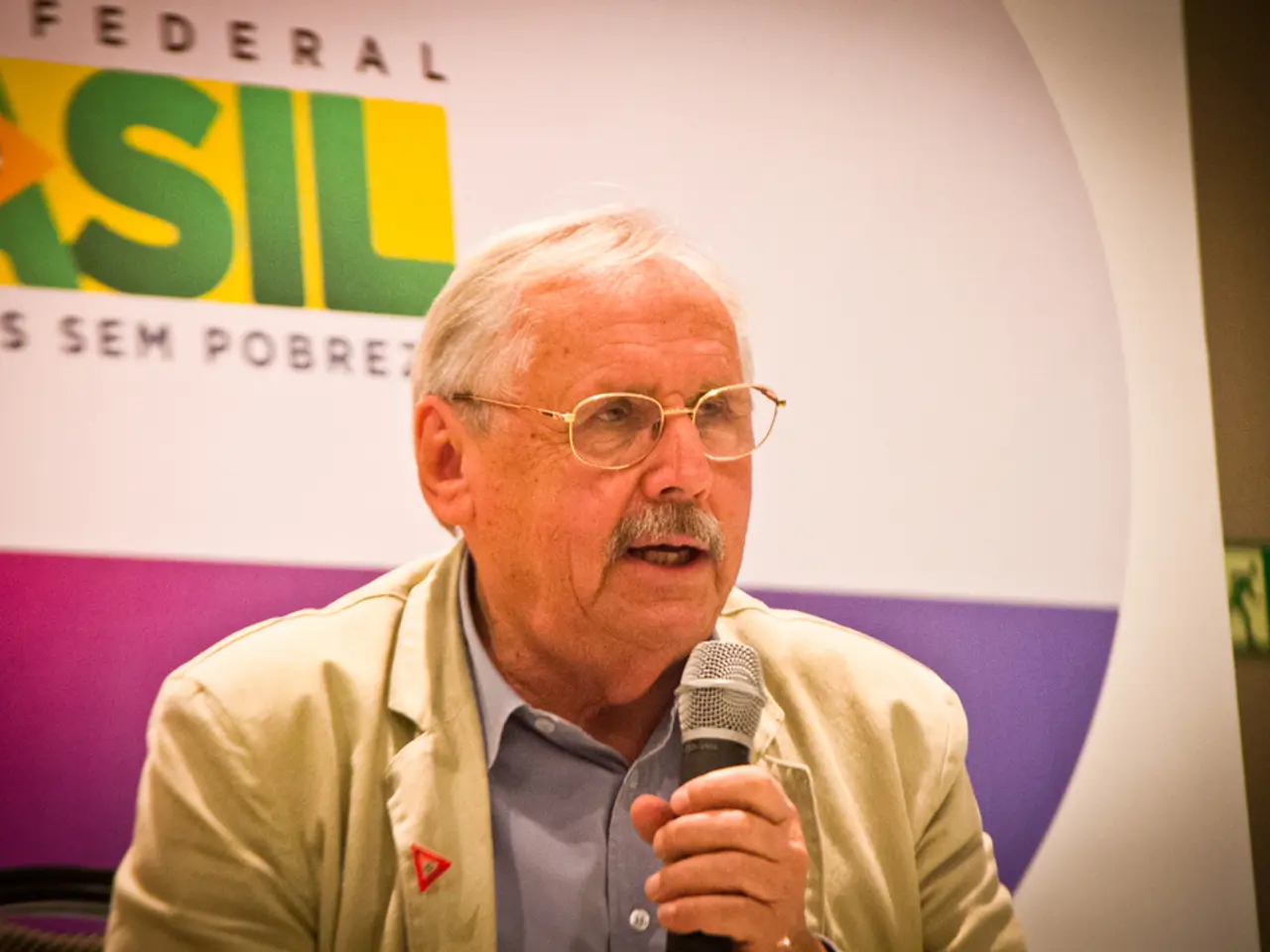Incumbent Democratic Governor Tony Evers announces his decision not to run for a third term in the politically significant state of Wisconsin.
Wisconsin's 2026 Governor Race: A Battleground for Power
After announcing he will not seek a third term, Democratic Governor Tony Evers has opened the field for the 2026 Wisconsin gubernatorial race, a contest that promises to be fiercely contested.
Democratic Primary
The Democratic primary is shaping up to be a crowded field, with several prominent figures vying for the position. Current Lieutenant Governor Sara Rodriguez has officially declared her candidacy, aiming to continue Gov. Evers' priorities such as reproductive freedom, public school investment, and economic rebuilding. Milwaukee County Executive David Crowley is set to enter the race soon, potentially making history as Wisconsin’s first Black governor if elected.
Other potential Democratic candidates include Sarah Godlewski, Wisconsin Secretary of State; Cavalier Johnson, Mayor of Milwaukee; Josh Kaul, Attorney General of Wisconsin; Chris Larson, state senator; Tom Nelson, Outagamie County Executive; Kelda Roys, state senator and 2018 gubernatorial candidate; and Ben Wikler, chair of the Wisconsin Democratic Party.
Republican Contenders
On the Republican side, Josh Schoemann, Washington County Executive, and Bill Berrien, a suburban Milwaukee businessman, have declared their candidacies. U.S. Rep. Tom Tiffany and State Senate President Mary Felzkowski are potential candidates considering a run. The Republican field, although currently smaller, may expand as others contemplate entering the race.
A Contentious Relationship
Evers' tenure has been marked by a contentious relationship with the Wisconsin Legislature, which has been under Republican control since 2011. During his term, Evers used his broad veto powers to stop Republicans from enacting a wide range of conservative priorities. This included blocking the redrawing of legislative boundary lines, a move that helped Democrats pick up seats in last November's election.
A Look Back at Evers' Tenure
Before being elected governor, Evers worked for 10 years as state superintendent of education after a career as a teacher and school administrator. Evers positioned himself as a folksy governor, using Midwestern colloquialisms in his comments. However, his decisions during the COVID-19 pandemic, such as ordering schools and nonessential businesses to close, issuing a statewide mask mandate, and trying to delay the state's April presidential primary, angered Republicans.
Despite the contentious relationship, Evers worked with Republicans to pass the most recent state budget, which included tax cuts prioritized by the GOP and more funding for K-12 special education and the University of Wisconsin.
National Implications
Nationwide, Democrats are trying to retake the House, and this race in Wisconsin could play a significant role in that effort. Kansas Governor Laura Kelly, chair of the Democratic Governors Association, has pledged to keep the governor's office under Democratic control in Wisconsin.
As the race heats up, both parties will work tirelessly to win the support of Wisconsin voters and secure a victory in the 2026 gubernatorial election.
- Migrants looking for education-and-self-development and personal-growth opportunities could find online-education resources beneficial as the 2026 Wisconsin gubernatorial race unfolds.
- Mindfulness practices might help candidates in the Democratic primary, such as Sarah Godlewski and Cavalier Johnson, manage the stress of the campaign season and focus on their goal-setting for policy-and-legislation changes.
- During the primary debates, candidates will need to address war-and-conflicts issues, such as immigration policies, and propose strategies for career-development and productivity improvements.
- Laura Kelly, chair of the Democratic Governors Association, emphasized the importance of lifelong-learning and skills-training for election workers to ensure fair and accurate results in the general-news coverage of the primaries and subsequent election.5.Job-search platforms could see an increase in traffic as voters take an active interest in the election's impact on their employment opportunities and job security.
- A contested race could lead to crime-and-justice concerns, as seen in car-accidents and accidents involving political advertisement signs and campaign vehicles.
- Fires, such as those caused by campaign headquarters malfunctions or local weather conditions, may be covered in the general-news, showing the importance of disaster preparedness and training.
- Sports, like football, can serve as a distraction from the political climate, with NFL and NCAA-football games providing opportunities for sports-betting enthusiasts to engage in their hobby.
- Wisconsin's gubernatorial race may have unforeseen implications that extend beyond the state lines, given the national implications of Democrats trying to retake the House.
- Education policies, such as reproductive freedom and public school investment, will be crucial topics discussed by candidates in the democratic primary, reflecting their commitment to the well-being of Wisconsin's citizens.
- The contentious relationship between Evers and the Wisconsin Legislature, marked by battlegrounds over policy-and-legislation, could create obstacles for economic rebuilding efforts.12.To maintain the governor's office under Democratic control, the party must prioritize campaign strategies aimed at engaging underrepresented communities, such as candidates of color (like Milwaukee County Executive David Crowley) who can appeal to diverse constituents.
- As integrity in elections becomes a paramount concern, politicians from both parties should learn and incorporate mindfulness practices to cultivate a more mindful and collaborative approach to policy-making and governance.




